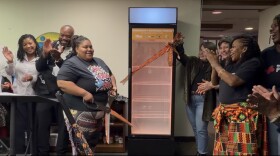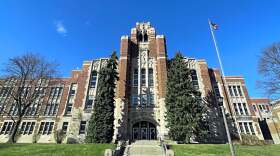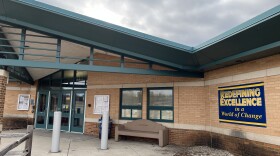The United States surpassed 3 million confirmed cases of COVID-19 on Wednesday. The number is a dark milestone in the ongoing fight against this disease.
Around the country, cases are spiking once again — erasing gains made earlier in this pandemic. The nation is once again heading into dangerous territory, with overburdened hospitals and personal protective equipment shortages.
>>Latest WUWM & NPR Coronavirus Coverage
Respiratory therapist Nou Thao knows firsthand what it’s like to work in those conditions. The MATC graduate volunteered to work at a hospital in East Orange, N.J., when cases began to spike there earlier in the pandemic. East Orange is a suburb of New York City, one of the hardest-hit areas in the nation.
Thao had about a year of work experience before volunteering in New Jersey. She had previously worked in pediatrics and thought the experience would be a good transition into working with adult patients. But what she saw when she first arrived in East Orange was shocking.
"There were a lot of positive cases of COVID-19 and a handful of admissions all coming at once. It was a bit overwhelming. Lots of coding, cardiac arrest, people not surviving. Lots of deaths," says Thao.
"It was a bit overwhelming. Lots of coding, cardiac arrest, people not surviving. Lots of deaths."
She says that while they were able to care for everyone who came to the hospital, they were loading four people into a room, with patients building up in the waiting room. Patients with COVID-19 were experiencing respiratory distress, breathing very fast, and she says the majority of them were intubated, meaning they were put on a machine to breathe for them.
She describes people foaming at the mouth due to a buildup of fluid in the lungs. "We can only do so much as far as suctioning goes ... So it's just been a lot of nonstop suctioning and trying to get that out as much as possible. Very rarely will you see someone make it out alive in a situation like that," she explains.
Thao says she was concerned when she returned to Wisconsin and saw that few people were taking the same precautions she saw in New Jersey. "I know when I was [in New Jersey] for eight weeks, everybody was wearing a mask whether they're walking the dog, riding a bike, or just walking around the neighborhood ... When I returned home it was very different. It was kind of hard to believe that everybody was still acting as if things are normal," she says.
"When I was [in New Jersey] for eight weeks, everybody was wearing a mask whether they're walking the dog, riding a bike, or just walking around the neighborhood ... When I returned home it was very different."
Thao was not only caring for COVID-19 patients while in New Jersey, but she also believes she contracted the disease.
"The first two weeks that I was there I had gotten really, really ill ... I was running a fever, I was showing some symptoms, but I was in denial. I'm thinking, 'I'm young, I'm tough. There's no way I could've gotten COVID already, but I did collapse in the hotel elevator and at that moment I thought I was dying," she says.
While off duty, she passed out in the elevator of her hotel and was rushed to the hospital. The doctors said she likely contracted the disease, although they were unable to confirm that at the time due to the shortage of tests. It's a cautionary tale, and one that Thao hopes will convince others to take this disease more seriously.
If she were confronted by skeptics she says she would "probably share with them my experience, among the experiences I faced while working at the hospital."
Have a question you'd like WUWM to answer? Submit your query below.
_






